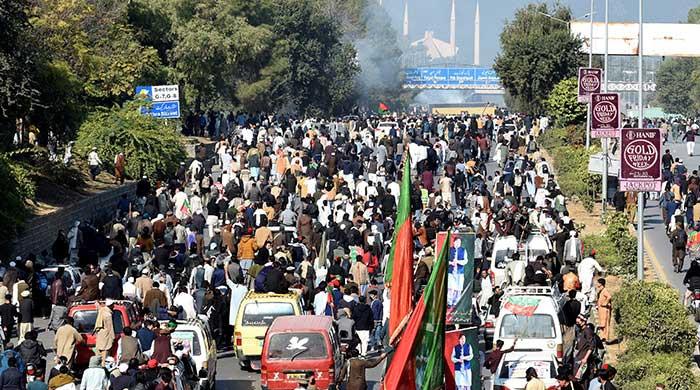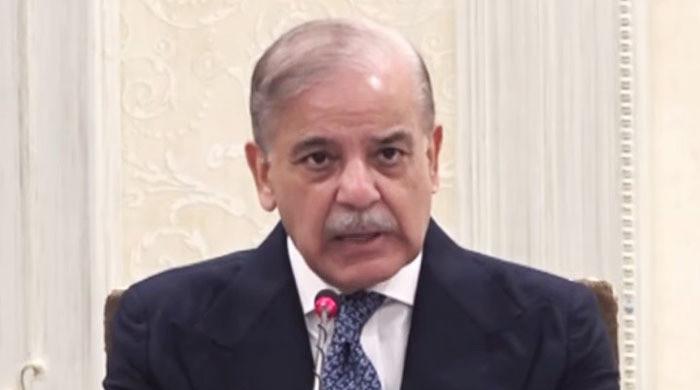After record rain in UAE, Pakistan seeks collaboration with Gulf nation on climate change
Shehbaz congratulates Sheikh Mohamed for expeditiously responding to the country's worst rains
April 19, 2024

Calling for joint efforts against climate change, Prime Minister Muhammad Shehbaz Sharif on Friday hailed the United Arab Emirates (UAE) leadership for expeditiously responding to the worst rains and flooding in the Middle Eastern nation.
Over 254 millimetres of rain — about two years' worth — lashed the Emirates in days that swamped its urban centers, closing down airports, educational institutes, businesses, and highways.
Official media said it was the highest rainfall since records began in 1949, before the formation of the UAE in the year 1971.
The PM, who held a telephonic conversation with President of the United Arab Emirates (UAE) Sheikh Mohamed bin Zayed Al Nahyan, congratulated him for his government’s timely efforts to control the flooding-related damages that saved lives.
“The Prime Minister’s call was centered on his admiration for the strong resolve and impeccable efficiency with which the UAE leadership had confronted the challenges that had emerged from the recent rains in the country,” according to the statement issued by the PM Office.
PM Shehbaz commended the UAE President for demonstrating his outstanding leadership qualities and his strong commitment to ensuring the welfare of the Emirati people.
“Pakistan has also witnessed heavy rains in recent days, resulting in loss of many precious lives,” the PMO quoted the prime minister as saying.
He called for collective actions to combat the challenge of climate change and suggested that both countries strengthen their collaboration in the field.
“The UAE president expressed appreciation for the prime minister’s good wishes and reciprocated the warm sentiments for the people affected from rains and flooding in Pakistan,” state-run APP reported.
Both leaders reaffirmed their commitment to enhance bilateral cooperation in multifaceted areas.
Record rains
Deaths from heavy rains earlier this week in the UAE rose to four, authorities said on Friday, as well as flooding roads and jamming Dubai's international airport, Reuters reported.
The storm first hit Oman at the weekend, killing at least 20 people, before pounding the UAE on Tuesday with its heaviest rains in 75 years of records.
Two Philippine women and one man died in their vehicles during flooding, the government in Manila said. An Emirati man in his 70s had also died when his vehicle was swept away by floods in the northern Ras Al Khaimah emirate.
According to Reuters report, Scientists blame increasingly common extreme weather events, such as the rains in UAE and Oman, on human-led global warming.
Dubai International Airport, one of the world's busiest and a hub for travel around the Middle East, was still struggling to clear a backlog of flights three days after the storm.
As of Friday morning, 1,478 flights to and from Dubai had been cancelled since Tuesday, approximately 30% of all flights, according to aircraft flight tracking website FlightRadar24.
The main road connecting Dubai, the most populous emirate, with Abu Dhabi remained partially closed on Friday, while an alternative route saw vehicles driving through low water on the hard shoulder past abandoned cars and buses.
In the UAE's north, including in the emirate of Sharjah, local media reported people were reportedly still trapped in homes. Residents said there was extensive damage to businesses.
Rains are uncommon in the UAE, which is known for its hot desert climate and temperatures that can soar above 50 degrees Celsius in the summer.
The UAE's National Center of Meteorology said rain may return by late Monday, though predicted it would be light with a chance of heavy rain again on Tuesday in some areas.











